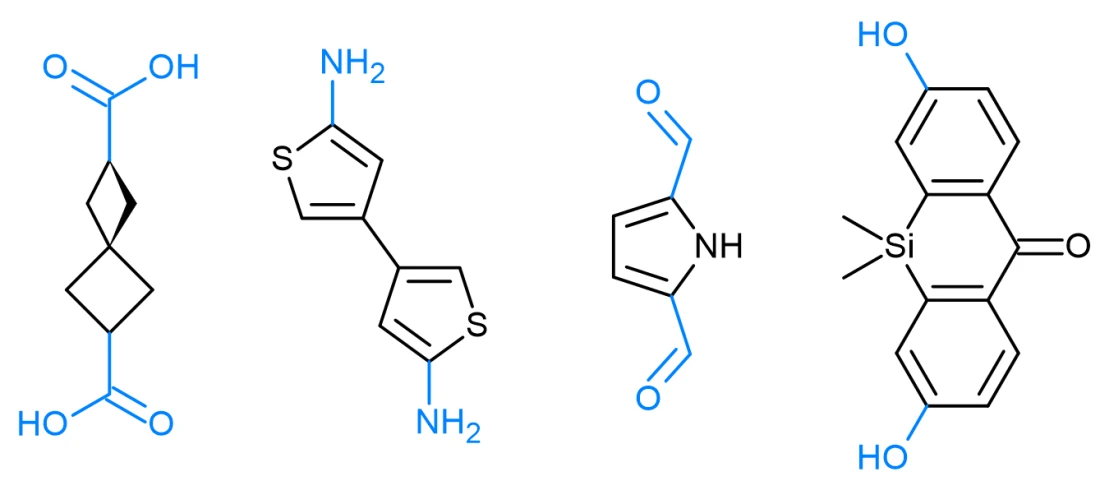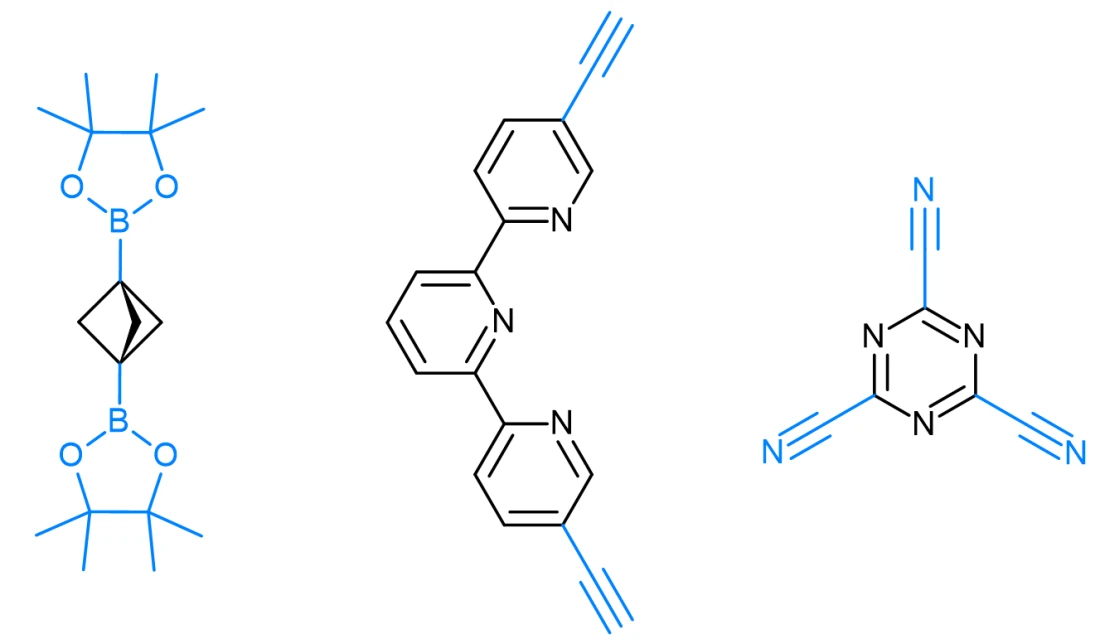Metal-Organic Frameworks (MOFs) and Covalent Organic Frameworks (COFs) are highly porous, crystalline materials designed for precise molecular interactions in areas such as gas storage, molecular separation, catalysis, and drug delivery. Their modular architectures enable fine control over pore size, surface area, and chemical environment, making them indispensable tools in contemporary materials science. The transformative impact of this class of materials was recognized with the 2025 Nobel Prize in Chemistry, awarded to Susumu Kitagawa, Richard Robson, and Omar Yaghi for their pioneering development of MOFs and their contribution to sustainable technologies.
The design and selection of linkers are central to the development of both functional MOFs and COFs, as they largely determine the resulting framework’s topology, porosity, and reactivity. Linkers can vary in several key parameters:
- Donating groups
- Connectivity (di-, tri-, tetra-, or multitopic)
- Size and linearity
- Symmetry
- Functionalization with additional organic substituents
We provide an extensive range of linkers for MOF and COF synthesis, readily available from stock.
- For MOFs: N-heterocyclic linkers, aldehyde linkers, amine linkers, carboxylic acids, hydroxy linkers, and monodentate nitrogen ligands.
- For COFs: Alkynyl linkers, amine linkers, boronic and borate linkers, nitrile linkers, and nitro linkers.
In addition to our comprehensive catalog, we also provide custom synthesis, ensuring solutions precisely aligned with your research objectives.


